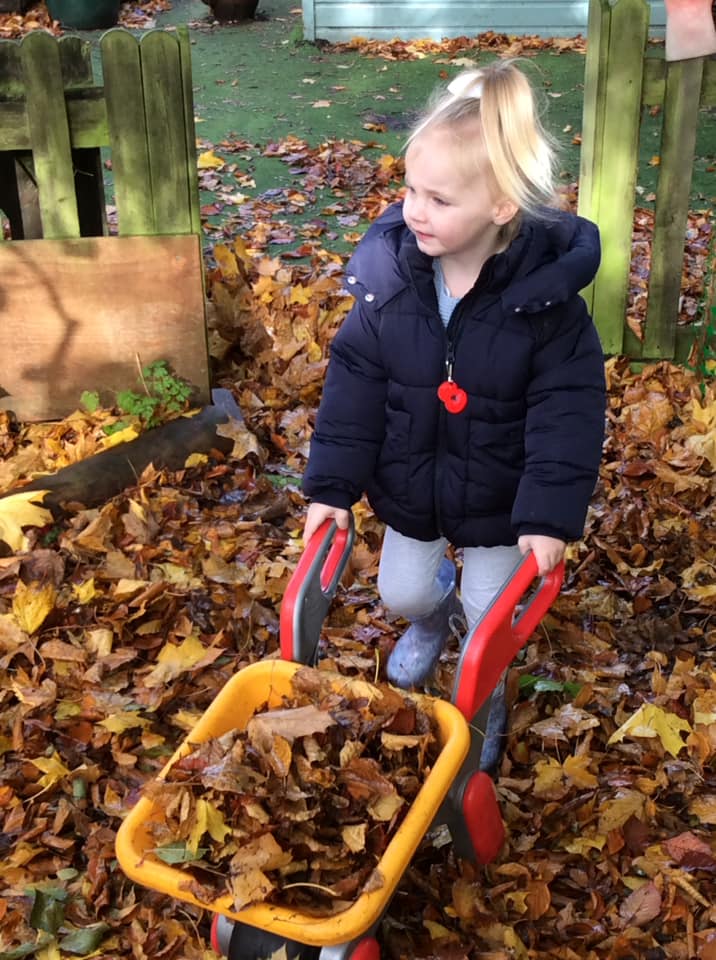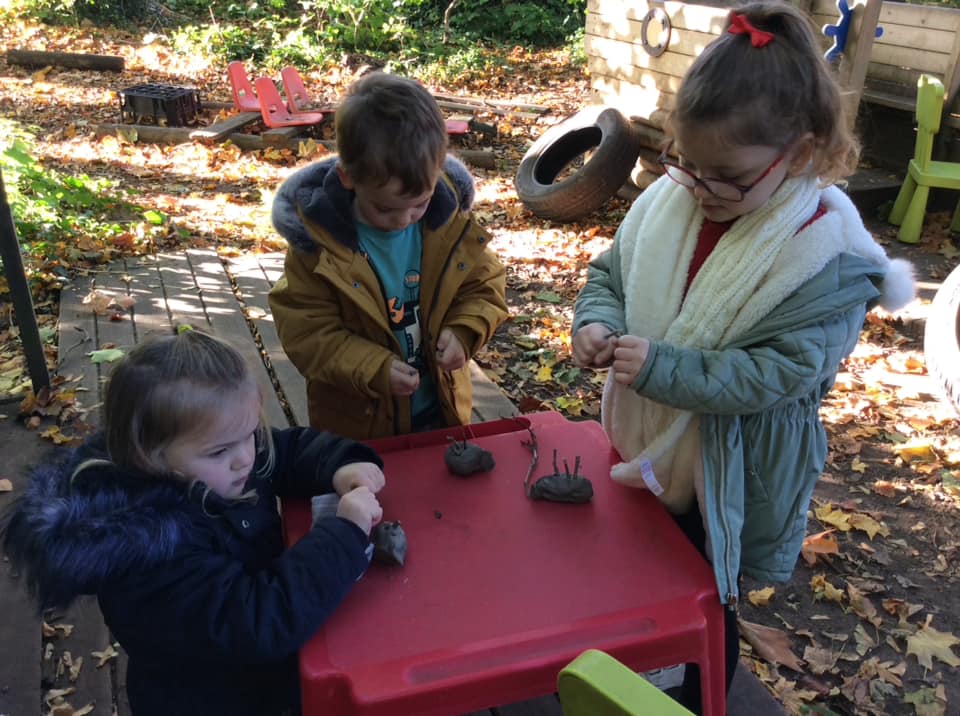Forest Schools
In Denmark, Forest Schools have been part of Early Years Education since the early 1980s. The philosophy of the Forest School was based upon a desire to provide young children with an education which encouraged appreciation of the wider, natural world and which would encourage responsibility for nature conservation in later life.
In 1995, the Bridgewater College in Somerset sent Nursery Nursing students and lecturers to Denmark where, having observed the Forest Schools in action, decided to apply the principles in their own College nursery. The Forest School in Bridgewater started in a small way where children undertook activities like those observed in Denmark. Since then, they have gone onto running training courses for early years practitioners and teachers, not only in this country but also all around the world.
Forest School at The Lawns
Although the principles can be applied in almost any environment (Forest School training has been done with staff who work in inner cities) many schools and children centres take their children 'off site' to access the natural environment. Here at The Lawns we are fortunate to have our wonderful garden where we already work closely with the seasons and environment. Several staff have completed BTEC Level 3 Advanced Forest School Leaders. We incorporate the principles into our own curriculum. Children work in small groups on achievable tasks. Which in turn supports their personal, social and emotional development, one of the prime areas of the EYFS, with one of the most important aspects being self-esteem.

Principles of Forest School
- The safety of the children is paramount
- Above all the children are never set up to fail
- To develop self esteem, confidence and independence
- To encourage and inspire individuals through small, achievable tasks
- To work with children's preferred learning style
- To encourage children to take responsibility for their own learning (adult led)
- To use the outdoors as a classroom and develop an understanding of the outdoor environment
- To use a wider range of physical skills
- To develop strong links with parents
- Time for deeper level learning
- Children quickly learn the boundaries within which they must work and adhere to the rules laid down for their safety.

